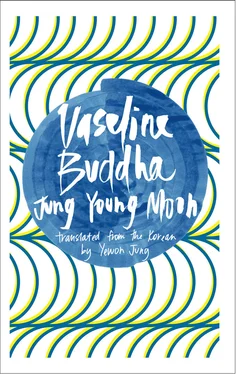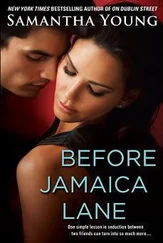For some time, I’d been in a constant state of lethargy — so constant that it was amazing when I thought about it — and had been unable to do anything, and hadn’t been doing anything. But an urge to write was awakened within me as if the thief, who went away without actually doing anything, had done something to me, had provoked me in some way as I thought about him, and thoughts began to squirm in my mind, like a stiffened body attempting some difficult movements. The vague stories that I’d tried to write down but had escaped me began to blossom little by little, and I wanted to give them a vague form that suited them. And I thought that the story I was to write could be like the experience I’d just had, which was really nothing at all, that I could make it that way, and thus write about intangible things, or about making things intangible.
Now there’s no sound coming from outside. I stare for a long time at the darkness outside from which no sound comes, or perhaps I just can’t hear the sound that’s coming. And staring at the darkness outside from within the utter darkness in the house, I think that thoughts on darkness could shed a certain light on what I’m about to write, to make all that’s obscure even more obscure, and if not, make it remain as obscure as it is, that what I’m about to write could turn into something that resembles certain shapes created by light and darkness, and that, although this sounds strange, there are things in life that can be revealed by shedding darkness, not light, on them. And thinking into the morning, I think that perhaps what I’m about to write will be about thoughts on my own thoughts themselves, or things that occur in my thoughts, or various thoughts that come out of thoughts and burrow into other thoughts or disappear, a sort of a daily record of thoughts, something that traps everything in certain thoughts and reveals itself through certain words or sentences.
I think it was one fine morning around the beginning of summer, when I heard a kitten, which seemed to have been abandoned by its mother, crying until it was exhausted, trapped in pumpkin vines in a little patch of ground in the garden that belonged to the strange old couple whose house I was renting, that I began to have more concrete but still vague thoughts about what I’m writing. The meow of the kitten was similar to the sound that comes when you squeeze the belly of certain dolls, certain baby dolls in particular, but the kitten, which never came out of the thick pumpkin vines, no longer made a sound, probably dead.
I felt a peculiar excitement as I pictured the kitten, though I couldn’t see it, trembling in fear among the pumpkin vines which must have seemed to the kitten like a jungle without an exit, so I wound up a music box that was on the table by the windowsill, and as I listened to the short melody, which sounded sad because it was in a minor key — I have several music boxes, and I like to play two or three of them at the same time and listen to the sound — I thought that what I wanted to write was becoming a little more concrete. But actually, it wasn’t concrete at all, and all I could think was that I could think about entering a story in which you’d get lost, like setting foot in a world from which you can’t extricate yourself.
Or perhaps this story had its beginning, insignificant as it was, during my stay in a small town in France very long ago, when I was struggling through an unbearable boredom that was, in its own way, desperate. The little town where I stayed for several months was an extremely boring place where the typical French bourgeoisie lived, with royal villas of the French royal family of the past nearby, and I usually managed to wake up only in the afternoon because of the wine I’d drunk through the night, and spent my time taking a walk in a park or sitting still on a bench in the park, where there were many old people, as there are in any park in Europe, sitting still on the benches and staring fixedly at something. I couldn’t tell what the people, who seemed to be sitting there with all the strength they could muster, almost desperately, but were in reality barely managing to sit there, exhausted, and whom I felt exhausted just watching and yet couldn’t easily take my eyes off, were watching, or not watching, or if they were watching something without seeing it, or imagining something they couldn’t see to be something else, but for a long time, I’d watch the people sitting on the benches, who had become one with the benches, and the benches that had become one with them, and the benches that were left on their own because the people left at a certain hour, the benches, to speak from the position of the benches themselves, that were allowed to be left on their own because the people had left.
And at a certain hour of the day, I’d see an old woman walk over, dragging her feet, to the bench in the park — the park was in a quiet area on a residential street where no tourists came — where she always sat, which other people left empty for her or avoided sitting on for that reason, and sit there knitting a little sweater for someone. She knitted so slowly that it would’ve been impossible to do so on purpose, and it seemed that she was trying to postpone the end of her life, or the end of the world, which didn’t have that much to do with herself, which would come the moment the sweater was finished, even though she had no real reason for doing so.
I would sit across the bench where she was sitting, eating little pieces of a baguette I’d brought, either the part that was left over after I gave some to the pigeons or the part that was left over after I ate some and then gave to the pigeons, or the part that was left over after we ate some together, or slowly eat a boiled potato, peeling the skin off bit by tiny bit, or eat corn, one grain at a time, pulling the grains out with meticulous care — when I did, I felt as if I were a jeweler setting tiny stones in a piece of jewelry — and from time to time, she, too, would lift her eyes, and without any change in her expression, look in my direction, as if to see how fast or slow I was doing something. I wasn’t sure if she could see me, sitting a little distance apart, and was thus able to tell what I was doing, or if she were merely turning her eyes to a form that she presumed to be human but didn’t look human.
I always went to the park unless I was too depressed or couldn’t get up because I was hung over from drinking too much, and took part in that strange game, perhaps a game I alone imagined we were playing, and each time, I imagined one of us winning or losing or the two of us drawing a tie, and always, it was the old woman whom I rooted for in my heart, and who thus won in my heart.
One day in late autumn that year, I saw her for the last time, attaching an arm to the body of the sweater, after which she no longer came out to the park, and I never found out if she had died without finishing the sweater, or quit just before she finished because she got tired of knitting the sweater, or became angry that she had spent so long knitting the sweater and burned it or unraveled it, or stopped coming outside just because it was cold. Nor did I find out if she really had someone for whom to knit a sweater. The only thing I’d seen by her side, in fact, was her dog.
The old woman had a little dog that took after her in many ways. The dog sat motionless before her while she sat knitting, and it had to sit motionless like that. The old woman didn’t like it when the dog moved or wandered around. She could have let the dog roam about freely, without going far, within a range where her short vision reached, but she didn’t. But the dog, not having an easy time staying still, just like humans — it’s difficult for both humans and dogs to stay still, and probably more difficult than anything else — did all it could to move around while studying her face, but the woman did all she could to make the dog stay still, as if she bore a grudge against it. If the dog actually made to move, even slightly or sometimes even before the dog actually moved, the old woman would stop knitting and glare at the dog, and when she did, the dog became frightened and sat motionless like a well-trained dog. From time to time, when other dogs passed before the old woman and the dog, the dog, wanting to express how it felt to the other dogs, which were of its own kind, but knowing it wasn’t allowed to do so, expressed unutterable pain, for all it could express was unutterable pain. The dog opened its mouth as if to say something but didn’t bark or anything, and expressed its unutterable pain by digging in the ground with its paws, which was far from enough.
Читать дальше












